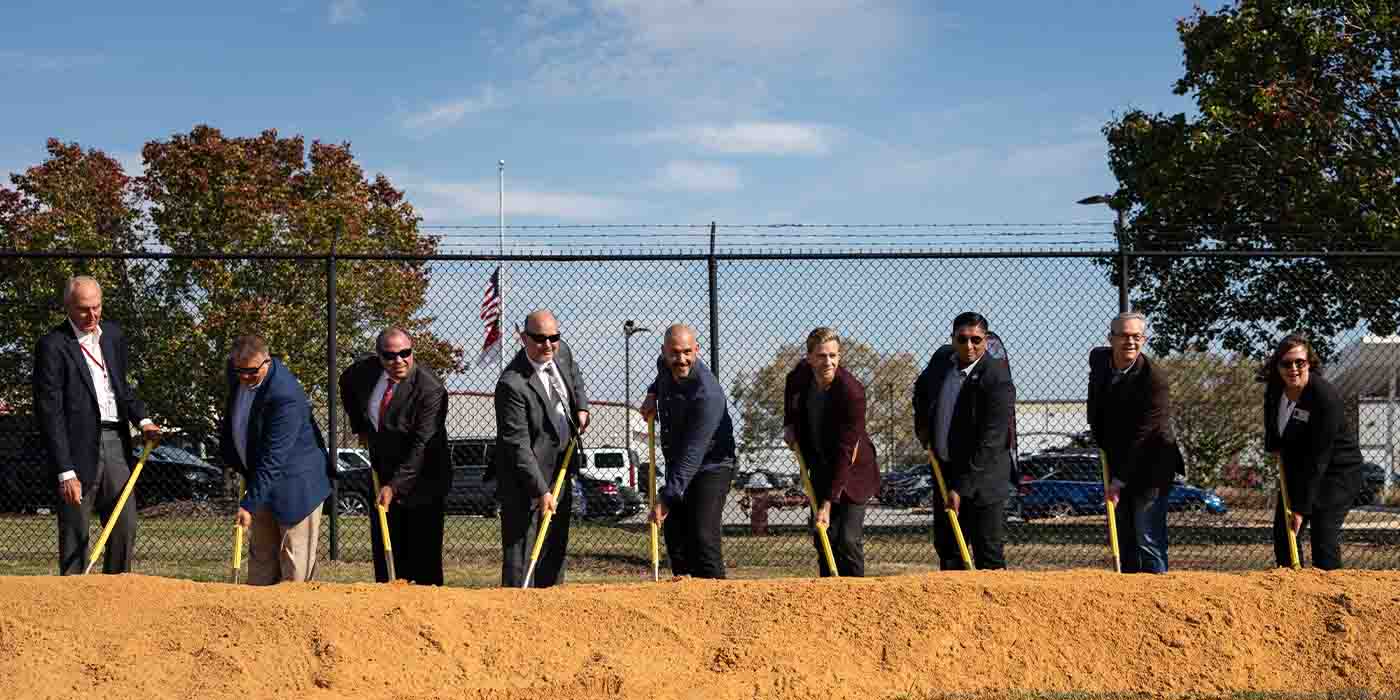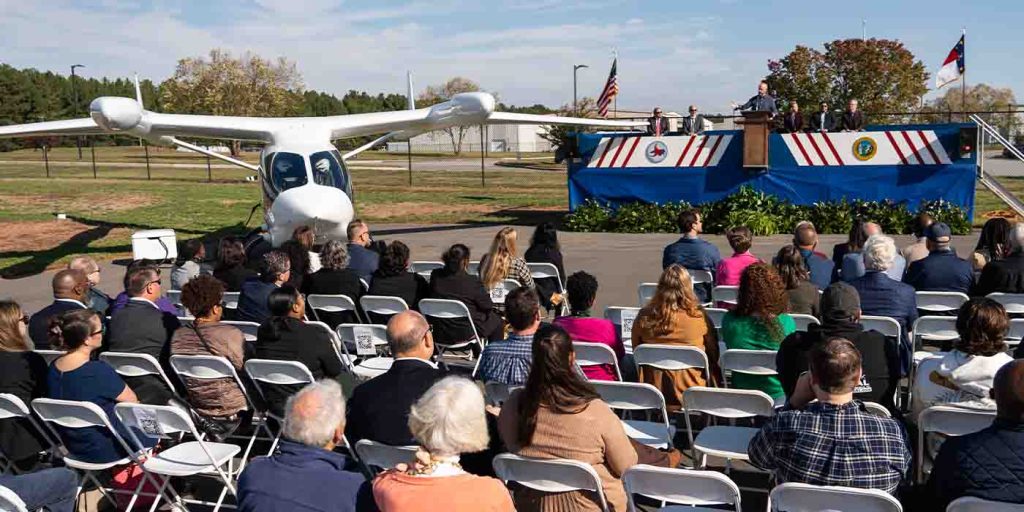
With initial production at its new manufacturing facility underway, electric aircraft developer BETA Technologies has begun setting up charging infrastructure to support its ongoing interstate flights. The company held a groundbreaking ceremony in North Carolina today, where it will install the first electric aircraft charging station in the entire state.
BETA Technologies is a fully integrated electric aircraft and systems developer based in Vermont that we’ve covered since 2021 when we caught a glimpse of its first aircraft – an eVTOL called the ALIA-250. That model has since been renamed the ALIA VTOL.
The VTOL has since been joined by an electric conventional takeoff and landing (eCTOL) plane called the ALIA CTOL, which had already flown over 26,000 test miles to date. That particular aircraft has already undergone evaluation flights for FAA certification and is targeting full approval for commercial operations by 2025.
In its test flights from Vermont, one of BETA Technologies stops has been North Carolina, the birthplace of flight, thanks to the Wright Brothers 120 years ago, with contributions from the coastal state’s strong winds. Yesterday, BETA broke ground on a new electric aircraft charging site in the Tar Heel State as it continues to expand its operations in the US.

Electric aircraft charging coming to the birthplace of flight
Today’s groundbreaking ceremony held at Raleigh Executive Jetport in Sanford, North Carolina, featured executives from BETA as well as state Transportation Secretary Joey Hopkins, director for Raleigh Executive Jetport Bob Heuts, and speakers from NCDOT, US Air Force program AFWERX, United Therapeutics, and AUVSI.
There was another special guest at the ceremony too – BETA’s CTOL electric aircraft (seen above), which flew in for the groundbreaking on its way down to Florida.
BETA will eventually install multimodal charging stations to support both electric aircraft and passenger electric vehicles. When complete, the site will house a Level 3 fast charging cube, capable of replenishing BETA’s electric aircraft in under an hour, supported by a new Charge Center for the crew to rest during the process.
The Raleigh site will also include the addition of a Level 2 car charger, which will be installed in the airport’s parking lot. BETA COO Blain Newton spoke to this infrastructural milestone:
The future of transportation is electric, and as we look to make this new technology a widespread reality in aviation, forward-leaning partners and investment in infrastructure will be critical. We have certainly found that in North Carolina. We are excited to have been able to fly our all-electric ALIA aircraft into Raleigh Executive Jetport from Burlington, Vermont, and chargers like the ones we will install together are what will power these types of missions in the future. This state has always been a first mover in aviation, so it’s no surprise that we’ve found support for the next generation of sustainable aviation solutions, too.
BETA shared that the new electric aircraft charging site is expected to be operational by Q1 of 2024. Simultaneously, the aircraft developer continues the installation of its assembly tooling and production lines of various adjacent systems at its new 188,500-square-foot manufacturing facility in Vermont.
FTC: We use income earning auto affiliate links. More.

